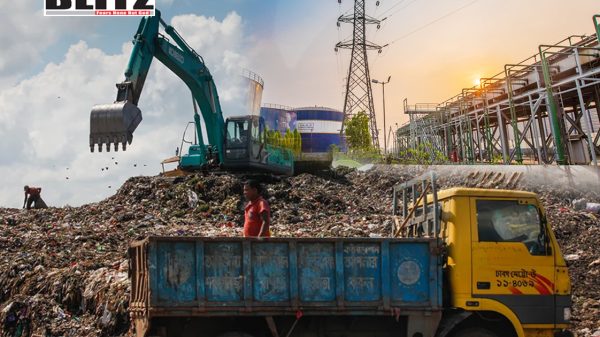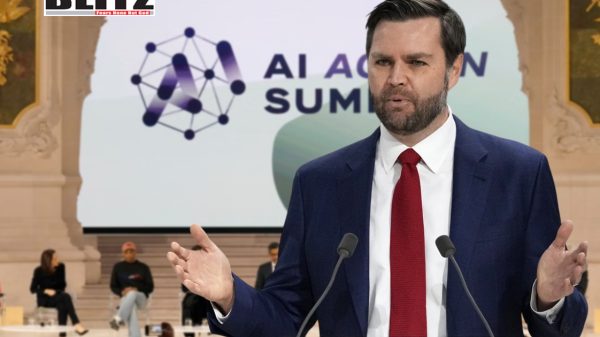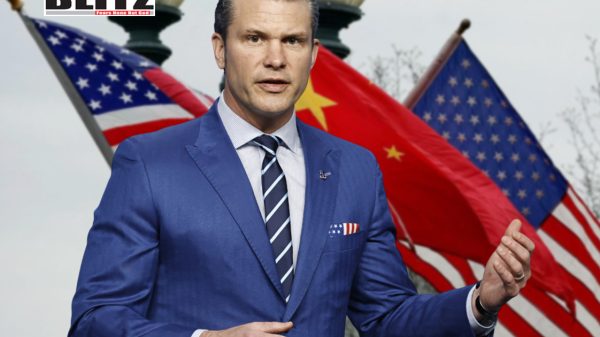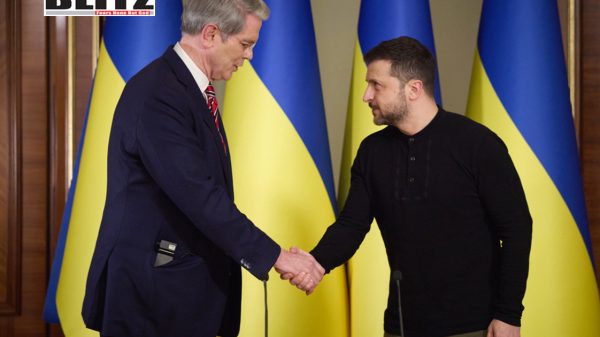Narayanganj WTE power plant faces indefinite delays amid management crisis
- Update Time : Friday, February 14, 2025

Bangladesh’s urban centers, including Dhaka and Narayanganj, are struggling with a mounting waste management crisis. In an effort to address this pressing issue, the government approved a waste-to-energy (WTE) power plant project in Narayanganj, aimed at converting municipal solid waste into electricity. However, despite its ambitious objectives, the proposed 6 MW WTE plant in Jalkuri has been plagued by severe delays due to bureaucratic roadblocks, the absence of crucial contractual agreements, and ongoing political instability.
The project received approval from the Cabinet Committee on Government Purchase (CCGP) in 2020 but has yet to commence construction. One of the primary hurdles is the lack of a finalized Power Purchase Agreement (PPA) with the Bangladesh Power Development Board (BPDB), which has stalled progress and cast uncertainty over the project’s future. The delay comes at a time when urban waste accumulation has reached unsustainable levels, requiring immediate intervention.
The Narayanganj WTE power plant is a collaborative effort involving UD Environmental Equipment Technology Co. Ltd, Everbright Environmental Protection Technology Equipment (Changzhou) Limited, and SABS Syndicate Ltd. The facility is designed to generate 6 MW of electricity by incinerating solid waste collected from Narayanganj City Corporation (NCC). The initiative aligns with Bangladesh’s broader strategy to implement sustainable waste management practices, as landfill space continues to shrink and environmental concerns grow. Authorities have emphasized WTE solutions as a viable alternative to conventional waste disposal methods.
The government allocated BDT 3.45 billion (approximately USD $37 million) for the development of the Jalkuri Sanitary Landfill and associated infrastructure. Of this amount, over BDT 3.30 billion was spent on acquiring 23.29 acres of land, with 10 acres specifically designated for the WTE power plant. Despite this significant financial commitment, bureaucratic bottlenecks have hindered the project from progressing as planned.
One of the major challenges has been the complicated approval process involving multiple government agencies. The project requires clearance from the Finance Ministry, the Law Ministry, the National Board of Revenue (NBR), and Bangladesh Bank, among others. Officials have expressed frustration over the prolonged review period, which has resulted in the project being left in limbo.
A senior Power Division official admitted that the vetting process could take several more months, further delaying implementation. Former State Minister for Power, Energy, and Mineral Resources Nasrul Hamid criticized the slow pace of approvals, stating, “It is very unfortunate that some ministries take too much time in the vetting process, which ultimately delays implementation.”
Despite repeated assurances from government officials, there is no clear timeline for when the necessary approvals will be granted and when construction will begin. This lack of urgency has raised concerns about whether the initiative will ever be completed or if it will be indefinitely postponed.
Land acquisition for the WTE project began in 2017, with NCC planning to develop the Jalkuri landfill into a fully operational waste-to-energy facility. By 2021-2022, the government had already allocated BDT 3.30 billion for land development. However, many financial aspects remain unclear, particularly regarding potential funding from external credit agencies (ECA) or private investors.
The Engineering, Procurement, and Construction (EPC) contract was awarded to the UD-Everbright-SABS Consortium, yet details about the suppliers of incineration technology and equipment have not been disclosed. This lack of transparency has raised concerns about the project’s long-term feasibility and technological reliability.
A key issue threatening the viability of the WTE power plant is securing a consistent supply of solid waste. The facility requires 600 tonnes of waste per day to operate at full capacity. However, the NCC currently struggles to collect 500 tonnes per day, leading to discussions about sourcing additional waste from nearby towns within Narayanganj District.
Moreover, the calorific value of the collected waste poses another significant challenge. To efficiently generate electricity, the waste must have a minimum calorific value of 1,500 kilocalories per kilogram. However, the waste available in Narayanganj averages only 1,350 kilocalories, potentially reducing the plant’s efficiency and power output.
Authorities have proposed measures to mitigate these issues, including improving waste segregation at the source and incorporating higher-energy materials into the waste stream. However, implementing these measures requires additional investment in public awareness campaigns and enhancements to municipal waste collection infrastructure.
The environmental impact of the WTE plant remains a subject of debate. Under the Bangladesh Environment Protection Act of 1995, the project must undergo an Environmental Impact Assessment (EIA). However, as of now, no such assessment has been conducted.
Preliminary estimates suggest that the power plant could emit between 205.18 and 293.87 kilotonnes of greenhouse gases annually, amounting to 5.13 to 7.35 million tonnes over its operational lifespan. While these figures are significantly lower than emissions from uncontrolled waste burning in open landfills, experts argue that the plant’s carbon footprint must be carefully managed to ensure compliance with environmental regulations.
Supporters of the project claim that it will help reduce methane emissions from decomposing waste in landfills while generating renewable energy. However, environmentalists warn that without proper pollution control mechanisms, the incineration process could release hazardous pollutants such as dioxins and heavy metals into the atmosphere.
Local residents have expressed mixed reactions to the project. While many acknowledge the urgent need for improved waste management, others are concerned about potential environmental hazards and whether the project will deliver on its promises.
According to recent media reports, Executive Engineer of Narayanganj City Corporation, revealed that the project in Jalkuri was not just planned for waste collection but also intended for power generation. Initially, the contract with the Chinese company was for a 6 MW power plant. However, after trial assessments, the company discovered financial inconsistencies and sought permission to expand the plant’s capacity to 10 MW. The government, however, insisted on proceeding with the 6 MW plan before considering any expansion.
When the contracted company failed to initiate construction within the agreed timeframe, the government ultimately canceled the contract, effectively bringing the project to a halt.
Given the current political context and the critical need for waste management solutions, Narayanganj City Corporation should reconsider the WTE power plant project. One viable option is to invite fresh tenders for the initiative, ensuring greater transparency and efficiency in the selection process. By doing so, the government can attract reputable investors and contractors while avoiding the bureaucratic pitfalls that led to the initial project’s failure.
Reviving the project with a new bidding process could help achieve multiple objectives: effective waste management, environmental sustainability, and electricity generation to address local energy shortages. If implemented successfully, the project could serve as an exemplary model for waste-to-energy initiatives in other cities across Bangladesh.
However, for this vision to become a reality, the government must expedite approval processes, ensure contractual transparency, and prioritize environmental safeguards. Without these measures, the WTE power plant in Narayanganj may remain yet another unrealized promise in Bangladesh’s struggle for sustainable urban development.














Leave a Reply